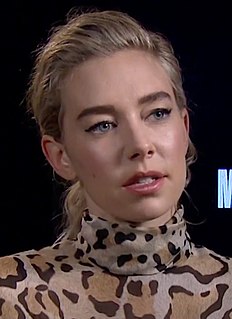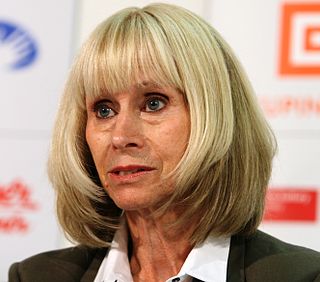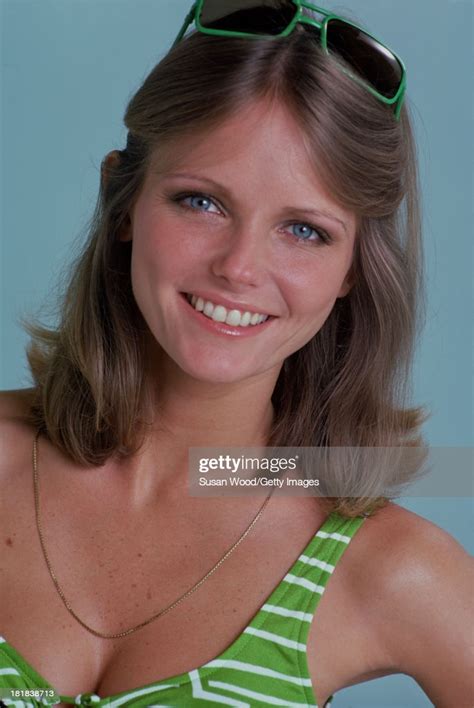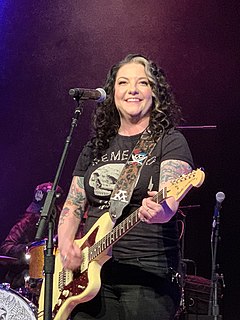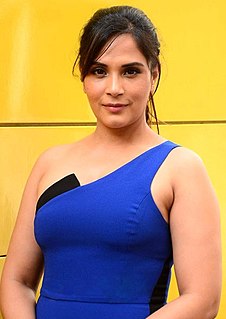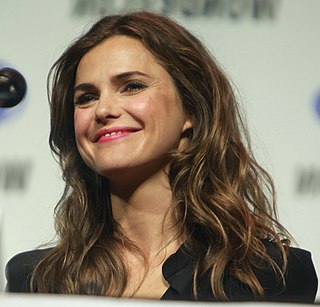A Quote by Vanessa Kirby
I did The 'Acid Test' at the Royal Court, by Anya Reiss, who's the most wonderful, amazing female writer. She was only 19 when she wrote it. She wrote it about three girls in a flat on a Friday night, and that was magic because it was so rare to have three girls in your age group in a play. It just doesn't happen.
Related Quotes
The woman who wrote the movie [Ladies And Gentlemen, The Fabulous Stains], her name is Nancy Dowd. She's a wonderful writer. She wrote Coming Home. And when I read the script, at that time, I thought, "This movie is going to do for girls what Breaking Away did for boys." I thought it was going to be huge. It was a great script.
Eleanor Roosevelt loved to write. She was a wonderful child writer. I mean, she wrote beautiful essays and stories as a child. And Marie Souvestre really appreciated Eleanor Roosevelt's talents and encouraged her talents. Also, she spoke perfect French. She grew up speaking French. She's now at a french-speaking school where, you know, girls are coming from all over the world. Not everybody speaks French.
The techniques are all means of dealing with one simple idea: She wrote it. (That is, the "wrong" person--in this case, female--has created the "right" value--i.e., art.)
Denial of Agency: She didn't write it.
Pollution of Agency: She shouldn't have written it.
Double Standard of Content: Yes, but look what she wrote about.
False Categorizing: She is not really she [an artist] and it is not really it [serious, of the right genre, aesthetically sound, important, etc.] so how could "she" have written "it"?
Or simply: Neither "she" nor "it" exists (simple exclusion).
I wrote before I could write. I got my hands on a journal, maybe a hand-me-down; I had three older siblings. My first entries are in the handwriting of the sister closets in age (5 years my senior). She must have gotten tired of my dictations because she gave up and then my blocky scrawl shows up. I wrote plays as a kid mostly.
I got into one of the schools I applied to because of the essay I wrote about Holly Hunter's character in 'Broadcast News.' She's the only female producer on this news network, and she's really good at her job, but she allots time in her day to just sit at her desk and cry. And then she's just back to work. I find that really effective.
There is an amazing feminist writer called Lindy West; she wrote a very nice piece for The New York Times. She wrote about Woody Allen, saying if we can't go after your work or your career, we will go after your legacy. You will never be remembered the same way. I think a lot of women will have to take solace in that.
I read a lot by female psychoanalyst Lou Andreas-Salomé, who wrote prominent biographies of Nietzsche, Rilke, and Freud because she studied with all of them. She had this unbelievable insight into contemporary psychoanalysis. What is so interesting is that she wrote her life, and she knew that her life would be about these men, and it didn't stop her from leading an incredibly successful academic career. But her strange self-awareness that she was going to bookmark these men's lives is really interesting to me.
I was reading Emily Dickinson and Edwin Arlington Robinson, but these weren't the poets that influenced me. I think Gwendolyn Brooks influenced me because she wrote about Chicago, and she wrote about poor people. And she influenced me in my life by giving me a blurb. I would see her in action, and she listened to every single person. She didn't say, "Oh, I'm tired. I gotta go." She was there, and present, with every single person. She's one of the great teachers.
In everything I do, I like to set the idea for girls that they can do anything. I was really moved by Hillary Clinton's speech when she lost the election - she didn't want young girls to feel like it wasn't possible and wanted them to know a female president will eventually happen. That's important.
The old rule about how a thing of beauty is a joy forever, in my experience, even the most beauteous thing is only a joy for about three hours, tops. After that, she'll want to tell you all about her childhood traumas. Part of meeting these jail girls is it's so sweet to look at your watch and know she'll be behind bars in half an hour.
